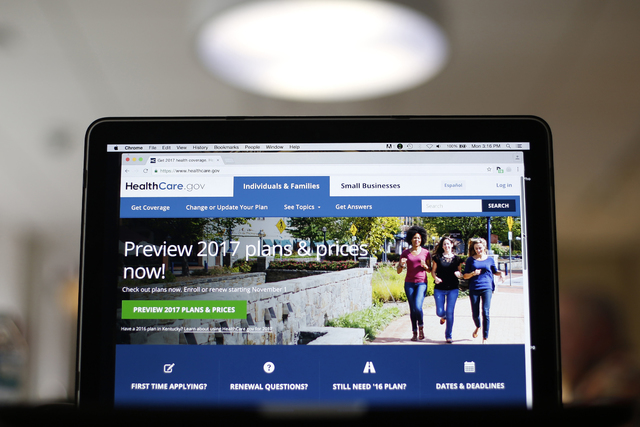52M Americans could be denied insurance if Obamacare is repealed

One in four non-elderly adults has a medical condition, ranging from diabetes to pregnancy to severe obesity to arthritis, that would make them uninsurable under the health coverage rules that prevailed before the Affordable Care Act, according to a new study.
Before President Obama’s signature health-care law took effect, insurers could deny coverage to people buying individual health plans or charge them higher rates based on their health history, occupation or the medications they took. Through one of the law’s most popular provisions, insurers can’t deny people coverage — and the factors they use to determine people’s premiums are extremely limited.
President-elect Donald Trump has promised to repeal the Affordable Care Act, but said in an interview on “60 Minutes” that prohibiting insurers from denying insurance to people based on their health history is “one of the strongest assets” of the law.
The new analysis by the Kaiser Family Foundation shows just how important that provision is to many Americans. The study examined 2015 data to see how prevalent preexisting conditions are and found that 52 million non-elderly Americans could be ineligible for insurance under the old rules. The analysis can’t distinguish what type of insurance those people have now; many are likely covered by an employer-based plan. But if those people were to lose their jobs or have a gap in coverage and found themselves purchasing a health plan on their own, they could run into restrictions, higher premiums or even denials if the pre-Obamacare rules were back in place.
“The point here is if the ACA is repealed or if the preexisting conditions protections aren’t as strong, this is the group of people who could be at risk if and when they lose their employer coverage or Medicaid,” said Cynthia Cox, associate director of health reform and private insurance at the Kaiser Family Foundation.
It has become clear that repealing the Affordable Care Act will be taken up quickly in Congress, although there is expected to be a multiyear delay before it is replaced. Republican replacement plans rely on state-run high-risk pools, which can provide subsidized insurance to people who are declined, but have in the past included high premiums and deductibles, exclusions for some preexisting conditions and limits on medical coverage. The Republican plan also has a “continuous coverage” provision, which would ensure that people can’t get big premium hikes if they get sick — as long as they stay insured.
If high-risk pools are established to deal with the problem, the study suggests states in the South and Midwest could be particularly challenged, since a larger portion of their populations have preexisting conditions.
One question dangling over the promise to keep providing insurance to people regardless of their health history has been how to do so without one of the most unpopular provisions of the law — the mandate that people carry insurance. To avoid simply charging the sickest people very high premiums, insurers need a mix of healthy and sick people to sign up.
Kristine Grow, a spokeswoman for America’s Health Insurance Plans, a lobbying group for insurers, said in an email that there is a need for alternative incentives for people to get and remain covered, mentioning that waiting periods or penalties for people who have had a break in coverage “could go a long way to avoiding even higher premiums and fewer choices for everyone.”